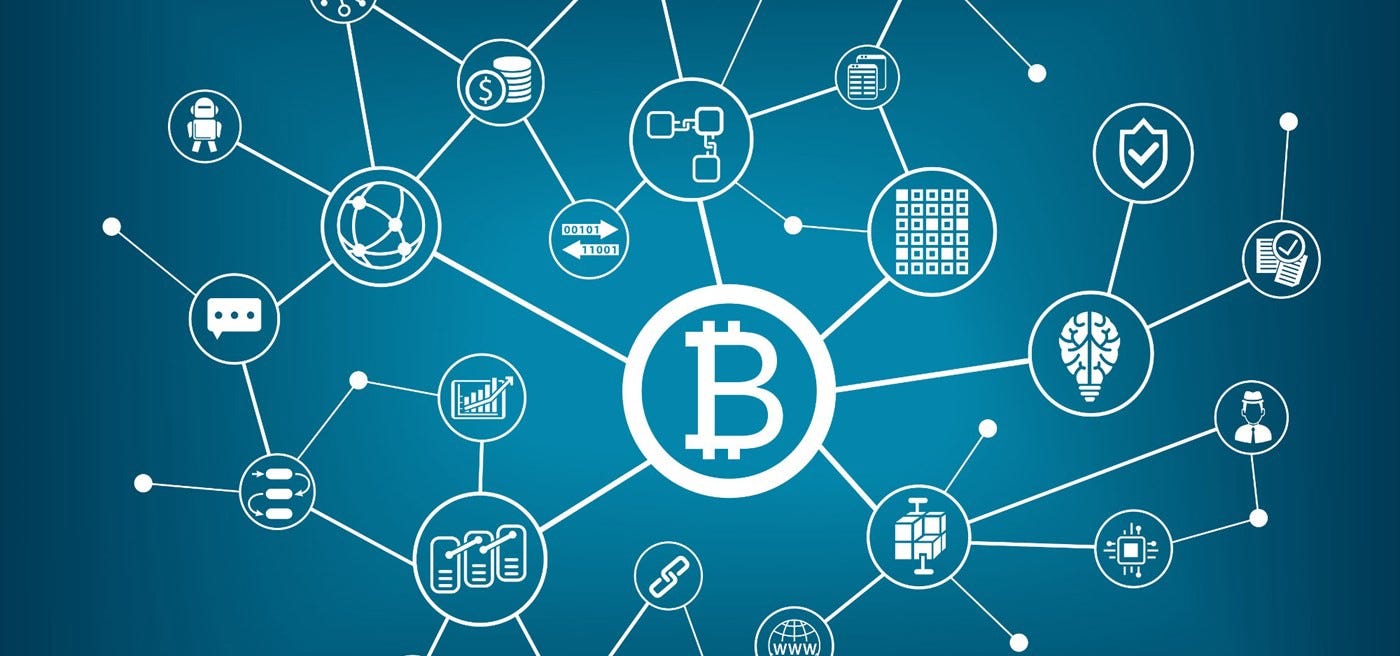IT career: who is a blockchain developer?
IT industry is one of the most promising and relevant today, especially among freelancers, so we decided to make a set of articles about freelance IT specialists and today we gonna discover who is a blockchain developer, what pros and cons has this specialization and how to start working with a Blockchain. Rock on!

A blockchain is a continuous sequential linked list built according to certain rules. At the same time, copies of such block chains are usually stored on many different computers independently from each other. Firstly this technology was used in cryptocurrencies, but now there are many applications: fintech, banks, identification, any kind of monitoring of data reliability.
Accordingly, the Blockchain developer creates software applications that will be executed by nodes in the block chain. He also customizes the interaction of 'classic' software or Distributed application (DApp ) with these applications.
The fate of a particular code depends on the type of blockchain. For example, a scripting language that supports Bitcoin severely limits the maximum allowable complexity of the algorithms implemented. So using Blockchain captures the results of client programs and arbitration between them. At the same time, Ethereum technology allows implementing quite complex algorithms and smart contracts written in high-level Solidity language. It supports the principles of OOP and enables to solve essential computational problems. The high cost of bugs and vulnerabilities requires cybersecurity programmer skills. It is also important for the Blockchain developer to optimize the code as much as possible by the number of operations and by the amount of memory.
The main task of the Blockchain-developer is the digital 'agreements' (smart contracts) creation. Their conditions are described programmatically, and the resulting smart contract is located in a chain of blocks, which prevents interference with its work or changing its content. So the possibility of deviating from the rules laid down in the 'agreement' is also rejected. In addition, such experts are also developing web pages or mobile apps where Blockchain interacts, using JavaScript, Java and Swift.
The product subject area depends on the project direction. For example, it could be:
software to simplify the process of user interaction with Blockchain
trusted arbitrators in tenders where it needs to exclude the influence of the human factor on the choice of the winner
programs to ensure transparency of e-government systems or charitable foundations
software to support calculations based on cryptocurrency
security expertise of third-party smart contracts
computer games

In the professional development Blockchain specialists are inspired by the possibilities that technology opens up, of the data transparency and permanence. On the other side, the main pros of becoming a Blockchain developer is the market predictions to reach $16 billion by 2024, as the report Global Market Insights, Inc conducted. Many large companies even today adopts the blockchain, for example, IBM, British Airways, Microsoft, Nestle and Walmart. The starting rates of freelance blockchain developers, by the way, are estimated nearly at $60 hourly.
‘The blockchain assumes a decentralized future, where there will be no players who control most of something’ — think freelancers.
Among the main cons are the newness of the technology and the high cost of errors. Most technologies are still in the testing mode, and development requires constant attention cause the product can no longer be changed after launch.
‘Sometimes there may be problems, which solutions are not obvious. And as fewer customers understand the limited nature and specificity of this technology, it is sometimes difficult to explain why it works such a way, not another’ — point out experts.

To work with Blockchain technologies and to become a Blockchain developer you need to know any typed programming language. Skills in the field of information security, understanding of the principles of OOP, data structures, knowledge of basic design patterns, experience in code optimizing and refactoring are also required. In addition, web programming skills will be useful, as programs that interact with Blockchain often have a web interface. Another plus will be an understanding of asymmetric cryptography based on elliptic curves.
To understand the essence of the Blockchain technology will help articles Bitcoin: A Peer-to-Peer Electronic Cash System’ by Satoshi Nakamoto, ‘Advances in Distributed Security’ and ‘Formalizing and Securing Relationships on Public Networks’ by Nick Szabo, ‘Cryptocash, cryptocurrencies, and cryptocontracts’ by Neal Koblitz and Alfred Menezes.
The most popular blockchain platforms are Ethereum, Hyperledger, Mastercard Blockchain, Amazon Managed Blockchain and Amazon QLDB.
So, is it worth to become a blockchain developer? Our answer is ‘YES’. How to do it? Choose a platform (for example, from the list above), read its White and Yellow Papers, make it clear how smart contracts work there, learn the fitting programming language and run your first test project!
Good luck!
Comments
Web-developer: top 10 frameworks in 2019 year
How to develop your IT skills? Listen to podcasts!
Add comment